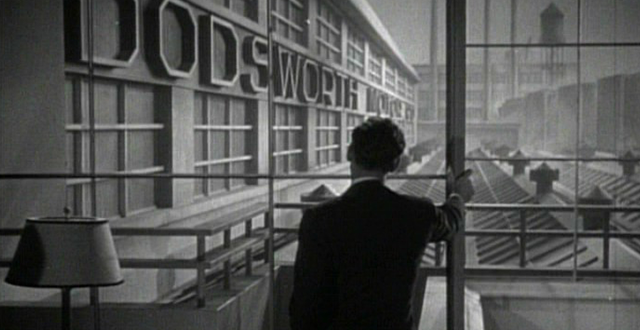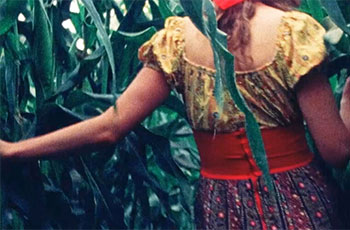
COMMEMORATING 30 YEARS OF TFF
12/22/2020If you love the cinema, you live with it. The films that comprise its history and the most precious manifestations of its particular power and beauty live with you in turn. You evolve and so does your relationship with individual films. Sometimes you grow away from them: they reveal their fault lines and their weaknesses and you come to see that the you of a particular time and age completed the film for itself. But there are other films—very, very few—that become more emotionally complex and uncanny with each new viewing.
To grow up in the 60s and 70s with parents and grandparents and a television set was to live through the 30s and 40s and 50s through their eyes as they watched the films they’d first seen as children and young adults. So, I saw Dodsworth for the first time on television. I don’t remember the circumstances, I just knew that my parents liked it and that I liked it, and that I found it very special without really knowing why. The older I got, the more it moved me. Watching the Academy/Film Foundation restoration on a big screen one year ago, with a packed audience that included William Wyler’s daughters Catherine and Melanie, was a deeply moving experience for me.
Dodsworth is a film about misplaced devotion and the freedom to become yourself. It is deeply felt by its director, who translates his feelings into cinema. It is, unlike many other American films of its era, absolutely frank about adult matters like who is sleeping with whom and what love is and isn’t. The opening image of a slumped Sam Dodsworth, not just acted but embodied by Walter Huston, looking out for the last time on the auto factory he’s created and is leaving behind…Dodsworth on the deck of the Queen Mary making the transatlantic crossing, gazing out like a wonderstruck boy at Bishop’s Light on the English coast as a fur-clad Mary Astor calls out to him from her deck chair…the stunning confrontation between Dodsworth, his wife Fran (Ruth Chatterton) and her European lover (Paul Lukas) when he’s caught them red-handed…Fran’s chilling encounter with the traditional Viennese mother of a second lover…I could go on and on and on about moments big and small, the subtle inflections and gestures that are the lifeblood of all great films. I’ll just say that Dodsworth builds unassumingly to a final confrontation between man and wife that is perfectly staged, eternally shocking, deeply stirring, and genuinely deserving of a term that has been severely cheapened through overuse: life-affirming.
See you in 2021.
- Kent Jones
Follow us on Instagram, and Twitter!
DODSWORTH (1936, d. William Wyler)
Restored by the Academy Film Archive and The Film Foundation, in association with the Samuel Goldwyn Jr. Family Trust. Funding provided by the Hobson/Lucas Family Foundation.
The Film Foundation
